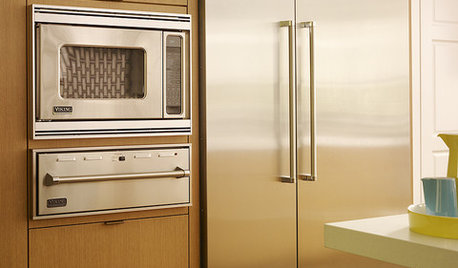What surge protector should I buy for my washer & dryer?
susanlynn2012
14 years ago
Featured Answer
Comments (14)
grainlady_ks
14 years agosusanlynn2012
14 years agoRelated Professionals
Jefferson Hills Kitchen & Bathroom Remodelers · Wadsworth Cabinets & Cabinetry · West Freehold Cabinets & Cabinetry · Aliso Viejo Custom Closet Designers · Honolulu Custom Closet Designers · Louisville Custom Closet Designers · Camp Springs Custom Closet Designers · North Druid Hills Custom Closet Designers · Freeport Flooring Contractors · Garland Flooring Contractors · Glendale Flooring Contractors · Huntington Station Flooring Contractors · Nashville Flooring Contractors · New Rochelle Flooring Contractors · Summerville Flooring Contractorsczechchick2
14 years agodianne47
14 years agosusanlynn2012
14 years agodadoes
14 years agosusanlynn2012
14 years agowestom
14 years agosusanlynn2012
14 years agowestom
14 years agosusanlynn2012
14 years agowestom
14 years agomamapinky0
8 years ago
Related Stories

KITCHEN DESIGNRenovation Detail: The Kitchen Laundry Room
Do your whites while dishing up dinner — a washer and dryer in the kitchen or pantry make quick work of laundry
Full Story
LAUNDRY ROOMSA Kitchen Laundry Cabinet Full of Surprises
A little DIY spirit allowed this homeowner to add a washer, dryer, kitchen countertop and dining table all in one
Full Story
REMODELING GUIDESContractor Tips: Advice for Laundry Room Design
Thinking ahead when installing or moving a washer and dryer can prevent frustration and damage down the road
Full Story
KITCHEN DESIGNA Cook’s 6 Tips for Buying Kitchen Appliances
An avid home chef answers tricky questions about choosing the right oven, stovetop, vent hood and more
Full Story
FURNITURESmart Shopper: How to Buy a Mattress
Confusing options, hair-raising prices, haggling ... Our guide can keep you from losing sleep over mattress shopping
Full Story
MOVINGHome-Buying Checklist: 20 Things to Consider Beyond the Inspection
Quality of life is just as important as construction quality. Learn what to look for at open houses to ensure comfort in your new home
Full Story
FEEL-GOOD HOME12 Very Useful Things I've Learned From Designers
These simple ideas can make life at home more efficient and enjoyable
Full Story
THE POLITE HOUSEThe Polite House: Can I Put a Remodel Project on Our Wedding Registry?
Find out how to ask guests for less traditional wedding gifts
Full Story
MUDROOMS4 High-Performing Mudroom Ideas
Looking for entryway ideas with plenty of storage? Here’s how to make hooks, cubbies and drawers look great
Full Story
FUN HOUZZDon’t Be a Stickybeak — and Other Home-Related Lingo From Abroad
Need to hire a contractor or buy a certain piece of furniture in the U.K. or Australia? Keep this guide at hand
Full StoryMore Discussions









docno